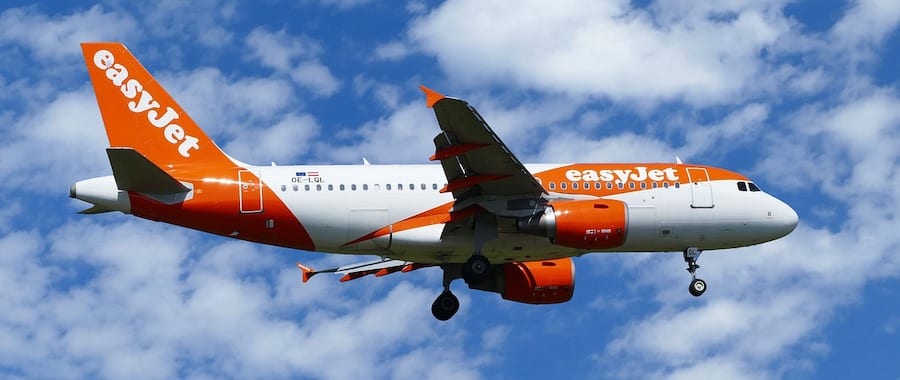EasyJet, the French Riviera’s largest domestic flyer, has announced that it is looking at its first annual loss in its 25-year history.
Despite taking stringent cost-cutting measures, EasyJet has said it will be operating at a before tax loss of £835 million this year. This is due in large part to the disruption in travel brought about by the coronavirus pandemic, which saw EasyJet’s passenger numbers nearly halve from over 96 million in 2019 to just 48.1 million in the year ending 30th September 2020.
Despite the huge losses, the company’s trading statement does not indicate it will be asking for more government assistance, though they are not ruling anything out. They have already accepted a £600 million loan, as well as cut 4,500 jobs and sold 608 million in aircraft to keep their heads above water.
Nonetheless, Johan Lundgren, EasyJet’s Chief Executive Officer, has expressed optimism for the company’s future in spite of the setbacks of this unprecedented year.
“I am immensely proud of the performance of the EasyJet team in facing the challenges of 2020. We responded robustly and decisively, minimising losses, reducing cash burn and launching the largest Cost Out and restructuring programme in our history – all while raising more than £3.1 billion in liquidity to date,” he said in a company announcement.
Lundgren went on to say that, “While we expect to fly no more than 20% of planned capacity for Q1 2021, maintaining our disciplined approach to cash generative flying over the winter, we retain the flexibility to rapidly ramp up when demand returns.”
Despite the brave face, the airline industry in general is suffering badly, and EasyJet has not escaped the fallout. Hopes of a recovery were dashed as autumn brought a fresh round of lockdowns and quarantine measures, limiting flights to and from Nice Côte d’Azur airport, which is only running at 22% of capacity.
According to published reports, based on current travel restrictions, EasyJet can expect to fly no more than 20% of planned capacity in the first fiscal quarter of 2021 as well, taking a chunk out of next year’s profits before the year has even begun. The company is quick to point out, though, that “given the continued level of short-term uncertainty, it would not be appropriate to provide any further financial guidance for the 2021 financial year.”
Low-cost giant reporting huge losses
